This post may contain affiliate links where I earn a commission, at no additional cost to you, if you decide to make a purchase after clicking on a link. Please see our Disclosure Policy for full details. Thank you for your support!
I bet you’re working on becoming (or have recently become) debt free, and you just can’t imagine ever going back into debt after all the work you’ve done!
Sadly, of all the people who do pay off all their debt, a decent portion of them eventually go back into it. A few months ago, I asked my Instagram followers if any of them had become debt free and then ended up back in debt. I received numerous comments and messages confirming my suspicion: this is happening!
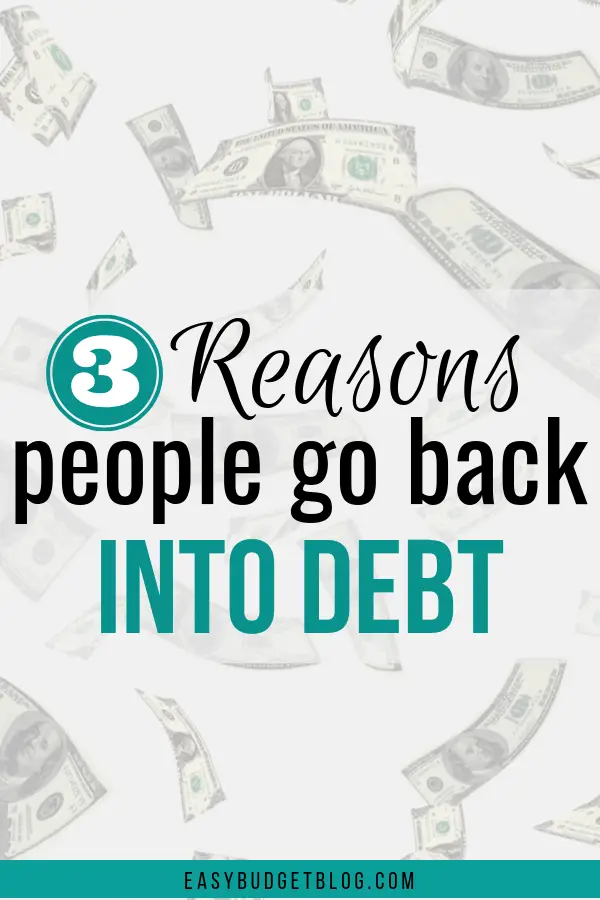
Unfortunately, I don’t have any data on how many people go back into debt, because as you can imagine, gurus who encourage people to pay off their loans rapidly aren’t exactly publishing information on how many of people who use their methods go back into debt.
But based on my little Instagram experiment and after talking with hundreds of my readers, I feel confident that this is happening, and that it’s preventable.
This isn’t happening to everyone, of course! Many people are crushing it! They are paying off their loans and then moving forward without looking back. This is what I hope to see more of!
To become and remain loan free you have to be careful and intentional. Consider these three reasons people go back into debt and determine how you can prevent yourself from becoming one of them.
THE TOP 3 REASONS PEOPLE GO BACK INTO DEBT
1. They Didn’t Change The Bad Behaviors
You’d think that over the process of paying off debt most people would change the bad behaviors that caused them to get into it in the first place, but it’s not always so. Sometimes people pay off their loans so quickly that they sort of “crash diet” the journey and once everything is paid off, they can’t really maintain the cuts they made to their budget or the income they were making to pay the debt off.

This can be combated by making sure your budget, income, and expenses are somewhat sustainable. That doesn’t mean you have to keep working that 30 hour a week side hustle if it’s just too much for you now that the debt is paid off, but you have to make sure your future plan is sustainable.
You need to make sure that you’ve nailed budgeting, you know how to live within your means, you can spend less than you make no matter what, and you understand that using debt to live outside your means isn’t right.
I think people who pay off their loans in full super quickly (6 months or less) are most prone to this mistake. The “journey” to debt freedom wasn’t painful enough to convince them to never take out loans again, and there wasn’t enough time to establish solid and replicable habits.
Again, it’s fine to pay off your loans this quickly. In fact, I encourage it! Just be sure you’ve got those good habits down and will continue to stick with them after your debt is paid off.
2. They Didn’t Have an Adequate Emergency Fund
Some people will pay off their debt and decide that an emergency fund is not a huge priority. They want to treat themselves and live a little. Then, something big will come up and they won’t have the cash to cover their issue, forcing them to use debt to cover the costs.
Others will be in the process of saving up an emergency fund when disaster strikes and they will take out more debt because their emergency fund wasn’t significant enough to cover it. Depending on the timing, this just won’t be preventable in some cases and will be very frustrating. However, I recommend staying gazelle intense through the process of saving a 3-6 months worth of expenses emergency fund to maximize your chances of this never happening. Becoming debt free is awesome, but you shouldn’t slow down your intensity too much until you have that emergency fund funded and ready to save you when an emergency strikes. The sooner you save it, the more likely you are to be covered when an emergency happens.
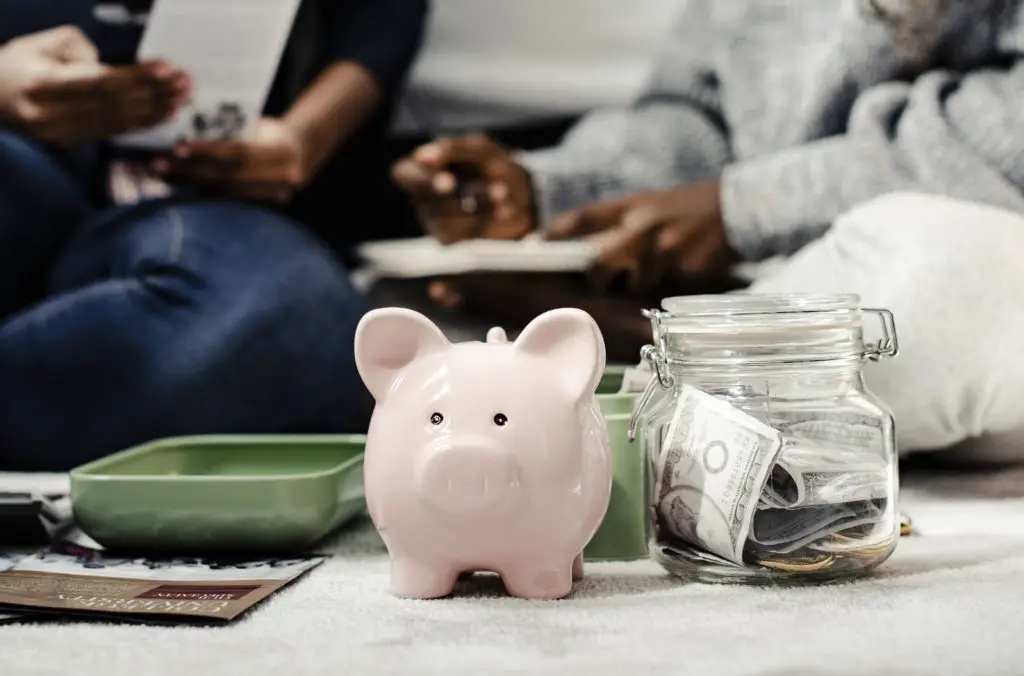
More still will save too little in their fully funded emergency fund so that when something happens, like a job loss or disability, it won’t cut it for covering their financial needs and debt will come to the rescue. Make sure you save 3-6 months worth of expenses in this fund (or more) and have good health, life, disability, homeowner, car, and other insurances. Try not to skimp here! The consequences could be disastrous.
3. They Don’t Mind Debt Anymore
After all that work to pay off debt, would people really change their mind about it? Actually, it’s very common. There is a pattern along the journey to financial freedom that I’ve seen replicated hundreds of times. It goes something like this:
- Person is not financially savvy. Incurs debt.
- Decides to pay it off in full and feels dogmatic about the means of doing so
- Pays off debt.
- During the process becomes much more financially savvy, knowledgeable, flexible, and open to new ideas. Researches new methods of growing wealth and develops their own unique plan and strategy.
- Decides some debt is reasonable and feels confident about managing it (i.e. credit cards for rewards points, real estate investing with mortgages and refinances, financing a car for a good deal but having the cash in their account, and paying it off within a few months before the APR sets in)

I am not recommending this, but I’m not speaking against it either. It just is what it is! Some experts will say “confidence” with using debt is a trap, and that you should never use it for any reason. I tend to agree that people should be careful here. It sort of is playing with fire. However, once you reach a certain amount of confidence and control with your financial plan, you might realize that some small decisions that involve debt are really not the deal breaker with your finances. There are many other factors that are much more important like savings rate, investment choices, and so on.
Some of my favorite resources to learn more about money management beyond debt payoff: ChoseFI Podcast, The Simple Path to Wealth by JL Collins, Rich Dad, Poor Dad by Robert Kiyosaki, and the Afford Anything Podcast.
If you are going to take on debt again, make sure you have a solid, foolproof plan! Be wise. Don’t pay interest into someone else’s pocket unless you are making that back and then some on the flip side of the deal. Don’t be overconfident in your abilities to handle debt and use it to your advantage.
There you have it my friends! The top 3 reasons people go back into debt, and how to make sure you don’t become one of them!
So what do you think? Do you agree with me? Have you ever paid off all your debt and then gone back into debt because something unexpected happened? I’d love to hear about it!
Like this post?
Pin this image to save it for later!

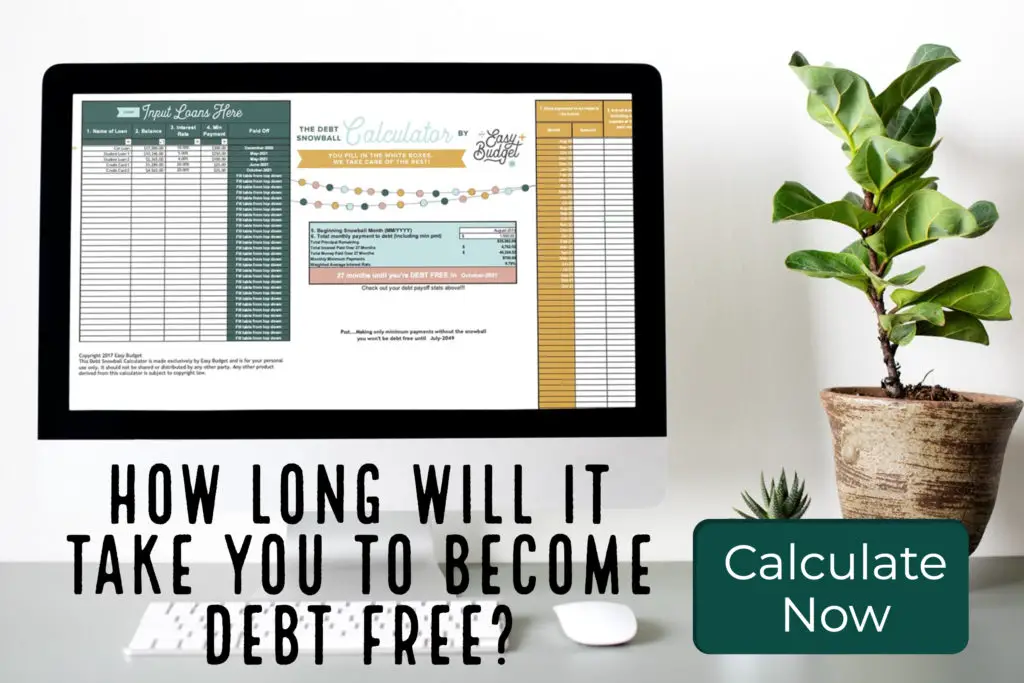
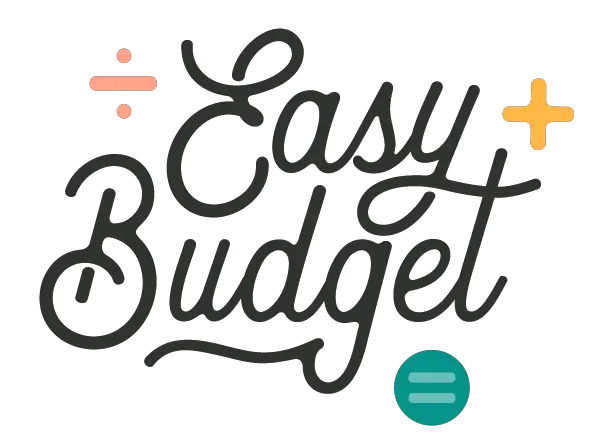





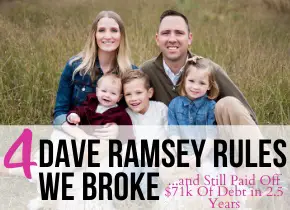


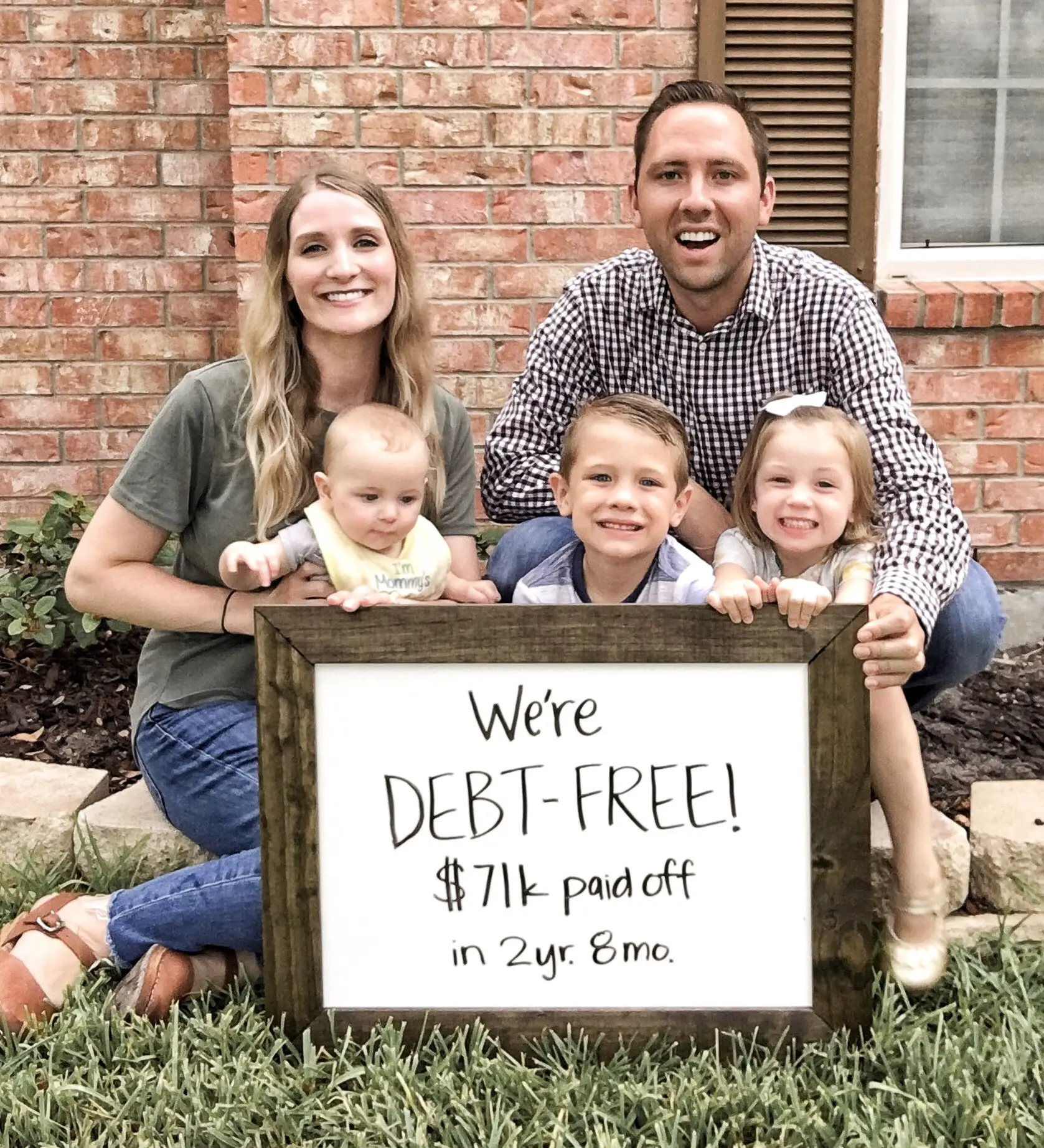
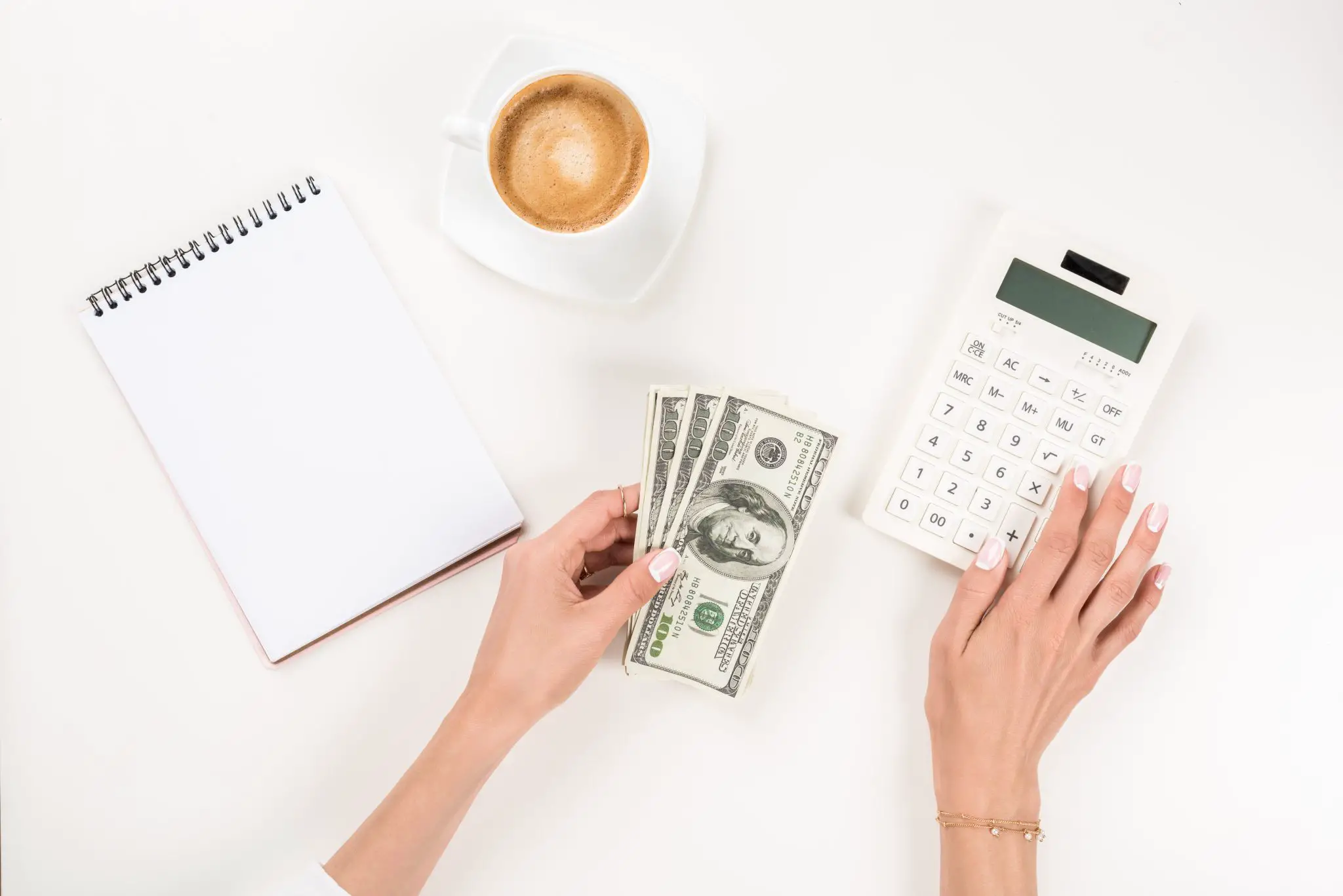
2 Responses
Yikes that’s a shame that people do that as it sucks major-ally paying off debt. However I can see it from the other side and that is you want it now and why not get it as its only one debt. Hubby and I haven’t ever gone back into consumer debt but occasionally I want to add onto our mortgage so we can do some renovations around our home as I’m very impatient and sometimes get sick of saving. Lucky I have a hubby who reminds me we are not doing that as paying off debt sucks. The mortgage is bad enough but adding more to it would defeat our early planned pay off date.
Yes! The temptation to go back into debt is real for all of us. Hopefully we can get to a place where our good habits, good sense, and finances are in a place where it never happens again!